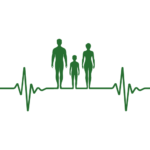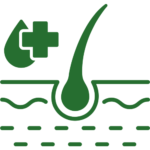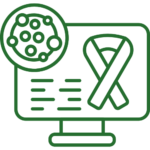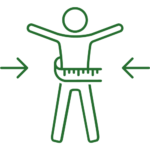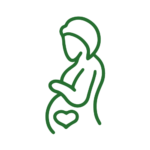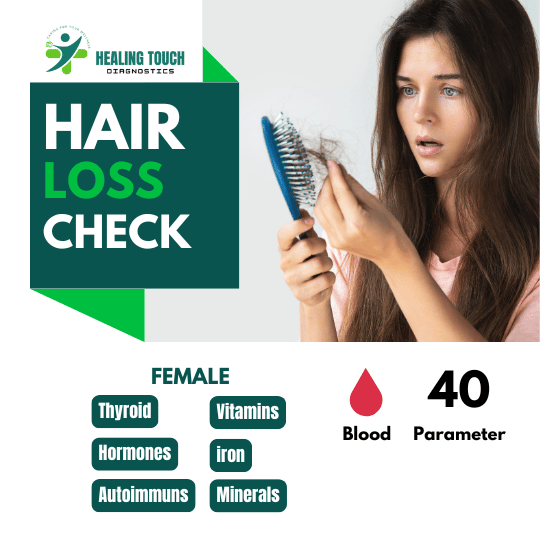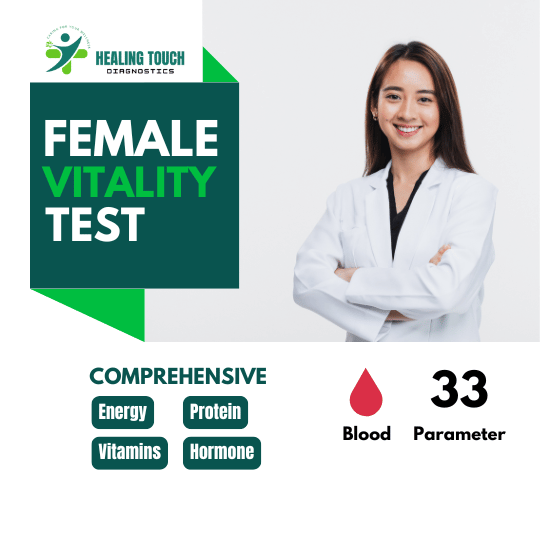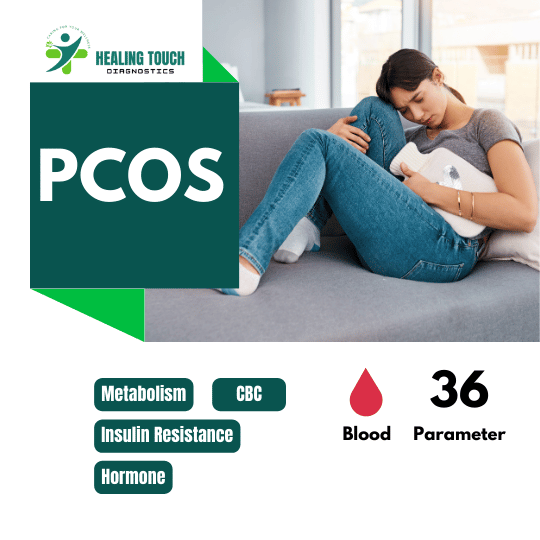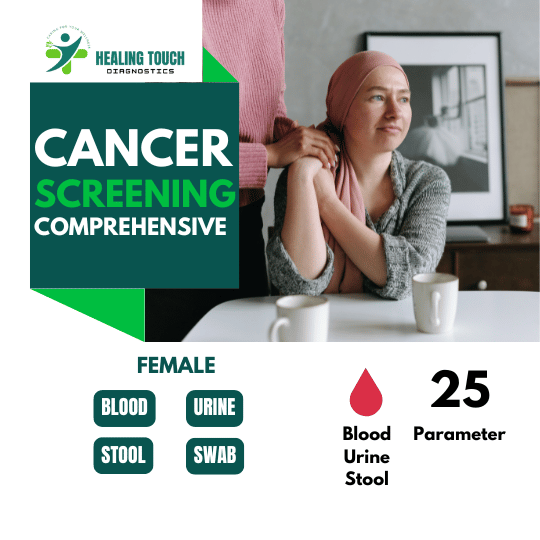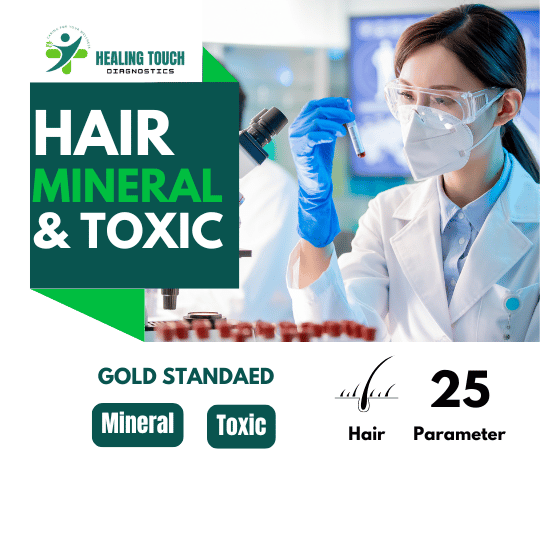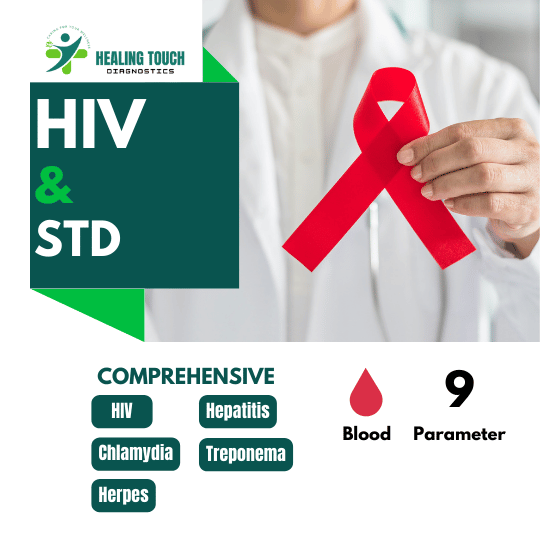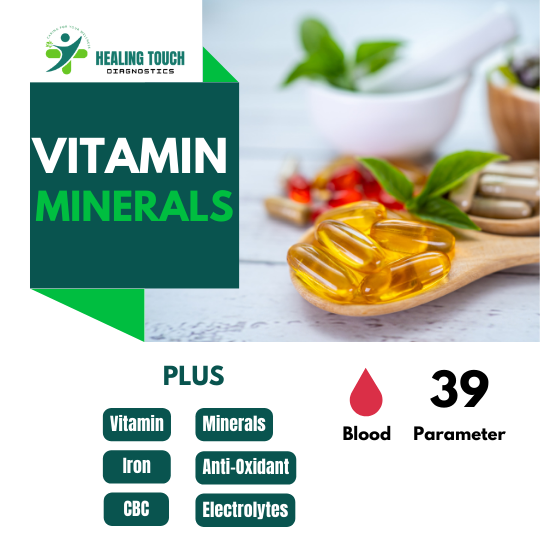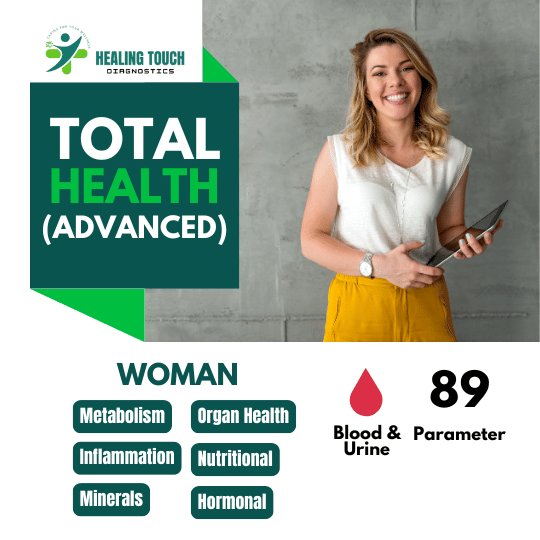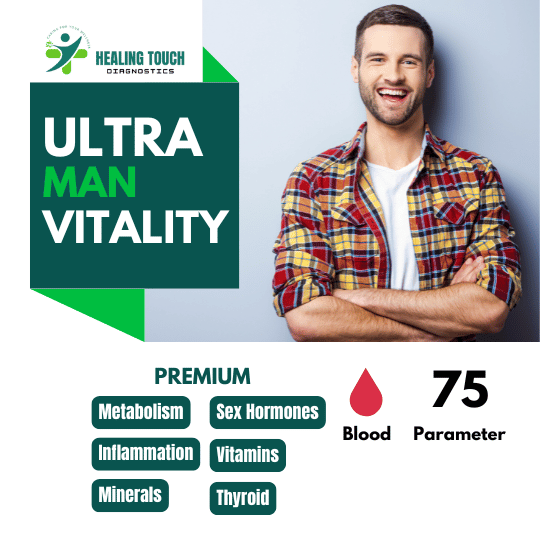
About the PCOS Test
The complete PCOS health check-up test is a full body health analysis package that reviews the comprehensive results of health markers and indicators.
It provides insight into 65 test parameters for kidney and liver functioning, thyroid profile, lipid profile, complete CBC, uric acid levels, Vitamin D, B12, and many vital functions.
The results of the tests will provide you or your doctor more complete information to diagnose PCOS accurately.
Metabolic Health
Metabolism is your body’s way of chemically processing sugar and fat for use throughout the body as energy. An optimal metabolism supports healthy weight control and energy levels, while a dysfunctional metabolism can lead to undesired fluctuations in weight and fatigue or decrease in Vitality
HbA1c & Fasting Insulin –Chief source of energy for the body which if elevated slows down fat loss and is also a risk for diabetes
Cholesterol & Lipids – An essential fat that serves many vital functions such as energy creation and metabolism. It is the principal building block of many of our hormones including estrogen, testosterone etc and also plays a vital role in Vit D production.
Thyroid Function – Overall measure of thyroid stimulation affecting metabolism, energy, weight and temperature control
Sex & Fertility Hormones
Testosterone is a hormone important for both men and women that regulates your sex drive (libido), muscle mass, fertility, and mood.
FSH is produced in the pituitary gland and is essential for production of eggs by the ovaries.
DHEAS is a precursor hormone that coverts into testosterone. Low levels could contribute to low libido
SHBG Sex Hormone Binding Globulin is a protein that’s made in the liver and attaches itself to sex hormones, primarily Testosterone, and removes it from direct utilisation in the body
Estradiol it’s vital to maintain an optimised ratio of Testosterone and Estrogen for female health. Symptoms like fatigue, excess fat around your waist and belly, bone loss, lack of sex drive, anxiety, irritability, and depression are when your body is not producing enough Estrogen
Progesterone Its main role is to prepare the body for and support a pregnancy. It is produced in increasing amounts in the second half of the menstrual cycle. Progesterone is normally tested on day 21 of your menstrual cycle to assess whether ovulation has taken place.
FSH , LH stimulates the menstrual cycle and peaks before ovulation
Prolactin stimulates sex drive and abnormal levels interfere with lack of energy, ED and fertility problems
Anti Mullerian Hormone (AMH) it is produced by the follicles which contain eggs within the ovary. Levels can indicate how high or low a woman’s ovarian reserve is
Blood Health
Iron is needed by the immune system and the body uses the free radical action of iron to attack some pathogens. Iron helps the immune system in another way by enhancing the ability of white blood cells to engulf and kill bacteria.
Ferritin is Oxygen-carrying capacity of the blood is essential for endurance exercise as well as for normal function of the nervous, behavioural, and immune systems.
What does PCOS means
Polycystic ovary syndrome (PCOS) is a hormone disorder that causes enlarged ovaries with cysts on the outer edges. Women with PCOS may have irregular or prolonged periods or have higher than normal androgen levels (male hormone).
For women with PCOS, the ovaries may develop small follicles or collections of fluid, while not being able to release eggs regularly. While the exact cause is unknown, it is important to get a diagnosis of PCOS early, so that secondary complications can be controlled. A complete health check-up and blood tests may be needed to gain deeper insight.

Causes of PCOS Polycystic ovary syndrome
The exact cause of PCOS is currently unknown, but there are factors that impact your risk of PCOS. Excess insulin in the body can play a role in increasing androgen production, creating difficulty with ovulation. There could be hereditary or genetic reasons behind the condition. Women may also have higher levels of androgenic hormones that are preventing ovaries from producing hormones and promoting ovulation.

Polycystic ovary syndrome symptoms
Women with PCOS have clear symptoms that they can track to determine whether they have the condition. If you have symptoms of PCOS then your doctor will suggest a complete body analysis to track major hormonal levels and risk of secondary diseases or health conditions.
The more common PCOS systems are –
- Irregular menstrual cycle – Problems with regular ovulation, prevents the uterine lining from shedding regularly. This can also cause issues with fertility and getting pregnant.
- Excessive bleeding – If you have PCOS then one of the symptoms is excessive bleeding during menstrual cycles. The lining could build up over time, causing the excessive bleeding.
- Presence of excess hair growth – A key determiner of whether you have PCOS is hair growth in the face, arms, and other areas. Excessive hair growth is a key symptom.
- Acne – The presence of acne caused by male hormone driven oiliness can cause breakouts in the face, upper back, etc.
- Balding and hair thinning – One of the main signs of PCOS is hair thinning and baldness.
- Weight gain and sluggishness – Weight gain can also occur, requiring blood tests to determine the root cause of the condition.

Difference between PCOS and PCOD
There are key differences between polycystic ovary syndrome (PCOS) and polycystic ovary disease (PCOD). Some of the main differences are listed below.
- Differences in condition – While PCOD is not truly considered a disease, PCOS is a serious metabolic disorder. With the right lifestyle and medication, PCOD can be better managed.
- Root cause of conditions – PCOD is a medical condition wherein the ovaries produce immature or partially mature eggs which can become cysts. PCOS is a metabolic disorder with serious conditions linked to it, such as inflammation, insulin resistance and infertility.
- Impact on fertility – PCOD doesn’t directly cause infertility in all women, which is why there is lower impact on fertility. With the right lifestyle and medication, the condition can be managed. In the case of PCOS high levels of androgens can cause irregular hormonal output. This can cause significant challenges to successful conception and pregnancy.
 Comprehensive Test Range
Comprehensive Test Range
 State-of-the-Art Facilities
State-of-the-Art Facilities
 Easy Slot Booking
Easy Slot Booking
 Quick Results
Quick Results
